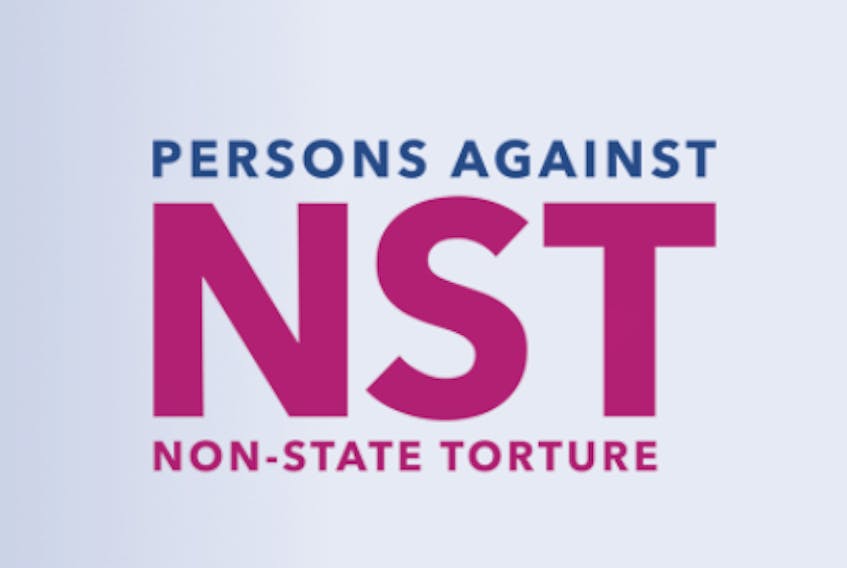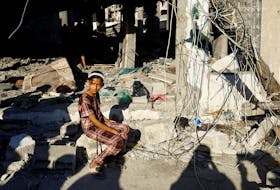It is most empathic and reasonable to agree that the criminal charges of torture inflicted by Louise and David Turpin against 12 of their children described in the recent article, “Parents arrested after children found chained inside house” are well founded.
Torture charges are possible in California under section 206 of their Penal Code. Every person who intentionally inflicts cruel or extreme pain and suffering for a variety of purposes is deemed to have committed torture. The State of Michigan enacted a similar law that holds any person who tortures legally accountable for their acts of torturing. Residents of Queensland, Australia, do the same.
Torture committed by private individuals is often called non-State torture. This differs from State torture because State torturers are considered government personnel, such as police or jail guards for example. The point made in the laws of California, Michigan, and Queensland is that the law applies equally, without exception, to anyone or everyone who decides to commit torture. These laws are also non-discriminatory in that any person who suffers torture regardless of who the torturers are, can seek justice for the crime of torture they suffered. This, however, is not the legal situation in Canada, but it may be a teachable moment.
In 2015, Linda MacDonald and I were contacted by MP Peter Fragiskatos, of London North Centre, Ont., because since 1993 our focussed work has been identifying non-State torture violence. He wanted to highlight a Private Members’ Bill identifying that torture is inflicted by private individuals or groups in Canada.
On Feb. 26, 2016, Mr. Fragiskatos introduced into the Canadian House of Commons Bill C-242, An Act to amend the Criminal Code (inflicting torture). Eventually the Bill was sent to the House of Commons Standing Committee on Justice and Human Rights, to be studied. The outcome decision the Standing Committee presented to the House of Commons Members was that a law to deal with private individuals or groups who committed acts of torture was “redundant” because acts of torture would be covered as aggravated assaults. Therefore, applying the Canadian law to the intentional cruelty and dehumanization inflicted against the Turpins’s children in Canada would result in it being identified as aggravated assault, not torture.
This can be a teachable moment for Canadians. The social consequence of not naming torture as a crime committed by private individuals that occurs in Canada nurtures serious gaps in social reality. Naming and talking truthfully about the degrees of violence that can occur within intimate relationships is necessary so children and adults who are so tortured do not feel they will be disbelieved, thus cannot tell.
Canadian Governments have known for decades that non-State torture occurs, especially when addressing sexualized violence against women and children. Even just going back to the 1993 Canadian Panel on Violence Against Women report, it identified to the Government that torture was occurring. In 2010 a report by Doug Lepard, a Vancouver policeman, identified that sadistic sexualized torture of women had occurred and the RCMP report on domestic sexualized human trafficking described acts of torture inflicted by human traffickers. They are non-State torturers.
The Canadian Centre for Child Protection works to protect children from online sexualized exploitation which eventually falls under the Department of Justice. In 2009 and 2014 the Centre’s reports to the Government included that the majority of the children who suffered the most extreme forms of violence, including torture, were newborns to children age eight years. The majority of sexualized victimizations were committed against girl children. This is a Canadian reality that is silenced when torture committed by private individuals or non-State actors is silenced.
So, do we want to make California’s truth-telling of torture that happened in a family a teachable moment for Canadians? Do we want to say to children or adults, so harmed, that they have a human and legal right to say they suffered torture not assaults? We can do so by letting our Government know it is socially and legally wrong to misname torture, aggravated assault.
Visit your MP, send an email to any member of Government regardless of your party politics – hiding the houses of horror that dwell in Canadian communities is no longer acceptable.

Jeanne Sarson lives in Truro. She and Linda MacDonald have focused their nursing work since 1993 to advocate for the human and legal rights of all people not to suffer non-State torture. Their work has been recognized in Canada and also with the United Nations since 2004. For more, go to www.nonstatetorture.org .








